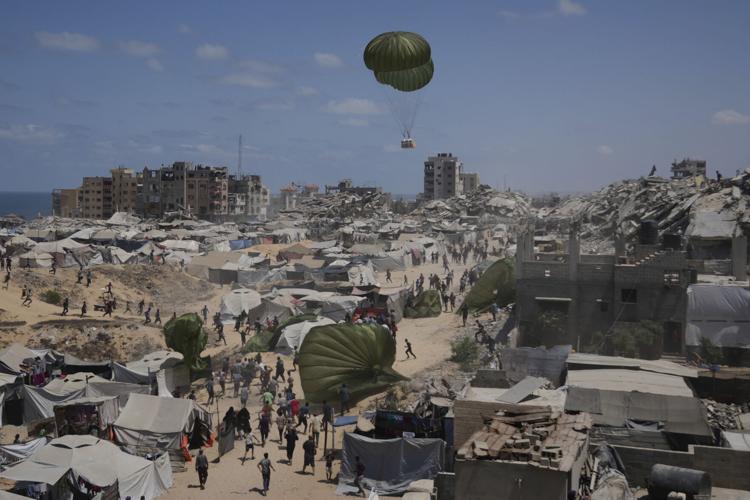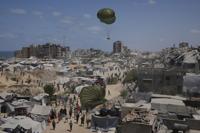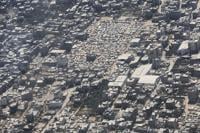Israel announced early Friday that it plans to take over Gaza City, the largest urban area in the territory and one that has already suffered extensive devastation in repeated Israeli raids.
Another major ground operation in one of the few areas of Gaza not already under evacuation orders would likely spark even more mass displacement and further disrupt efforts to deliver desperately needed food in the territory, where experts have warned that famine is unfolding.
Israel has faced mounting calls from many of its closest allies to end the war, and the plan faces opposition within Israel from families of the remaining 20 or so living hostages held by Hamas and members of the security establishment who say there is little to gain militarily at this point.
Prime Minister Benjamin Netanyahu says more military pressure is needed to achieve Israel's goals of returning the hostages and destroying Hamas.
Not much is left of Gaza City
Israel has repeatedly bombarded Gaza City and launched major ground operations there within weeks of Hamas' Oct. 7, 2023 attack that triggered the war. Several neighborhoods and key infrastructure have been almost completely destroyed.
It was Gaza's most populous city on the eve of the war, home to some 700,000 people, about the population of Washington, D.C. Hundreds of thousands fled under Israeli evacuation orders at the start of the war but many returned during a ceasefire earlier this year.
Israel already controls and has largely destroyed around 75% of Gaza, with most of the population of some 2 million Palestinians now sheltering in Gaza City, the central city of Deir al-Balah and the sprawling displacement camps in the Muwasi area along the coast.
Israel's offensive has already killed over 61,000 Palestinians, according to Gaza's Health Ministry, which does not say how many were fighters or civilians. The ministry is part of the Hamas-run government and staffed by medical professionals. The U.N. and independent experts view its figures as the most reliable estimate of war casualties. Israel disputes them but has not provided its own.
Opposition inside Israel
Another major ground operation will almost certainly lead to the killing of more Israeli soldiers in hit-and-run attacks, eroding domestic support for the war, and could endanger the remaining hostages.
Hamas-led militants killed some 1,200 people, mostly civilians, in the Oct. 7 attack and abducted 251 hostages. Most have since been released in ceasefires or other deals. Fifty remain inside the territory, around 20 of whom are believed by Israel to be alive.
Palestinian militants have released videos in recent days showing emaciated hostages, saying they are suffering the same starvation as the Palestinian population. Hamas is believed to be holding the hostages in tunnels and other secret locations and has hinted it will kill them if Israeli forces draw near.
Former security officials have also spoken out against further military operations, saying there is little to gain after Hamas has been militarily decimated. Israel's military chief of staff, Lt. Gen. Eyal Zamir, reportedly argued during a Security Cabinet meeting that a more sweeping plan to retake all of Gaza would endanger the hostages and put added strain on the army after two years of regional wars.
International outrage
Israel has come under mounting international pressure in recent weeks as images of starving children have shone a light on the worsening hunger crisis. Twenty-eight Western-aligned nations, including some of its closest allies, called for it to end the war last month.
Even President Donald Trump, the strongest supporter it has ever had in the White House, has expressed concern about the hunger crisis. He has said he wants to end the war and return all the hostages, but also that it's up to Israel to decide its next moves.
Israel has dismissed the criticism, saying it has done everything it can to limit harm to civilians and blaming Hamas for their deaths. Netanyahu has denied there is starvation in Gaza despite eyewitness testimony, data compiled by experts and dire warnings from United Nations officials and major international aid groups operating there.
Netanayahu has said more military pressure is needed to get Hamas to agree to release the hostages and surrender.
But Hamas has already withstood one of the deadliest and most destructive military campaigns since World War II. The militant group says it will only release the remaining hostages in return for a lasting ceasefire and an Israeli withdrawal.
Follow AP’s war coverage at https://apnews.com/hub/israel-hamas-war





